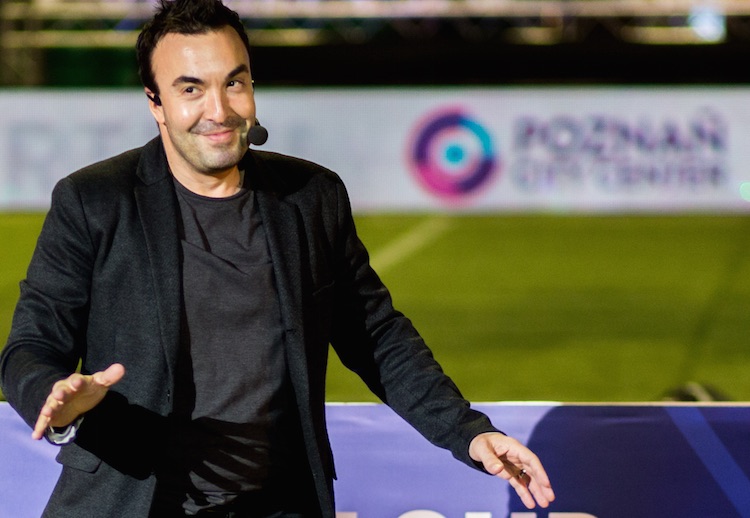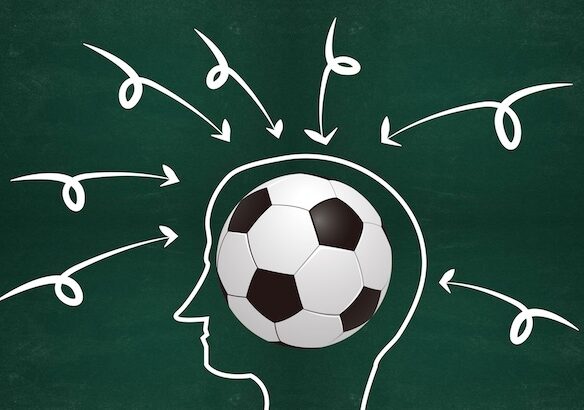Mental Strength: From The Inside Track of the EPL
Working in the medical department at a Premier League Club is an interesting experience. As a sports psychologist, I’ve been blessed to work in several leagues over the past 15 years.
It’s a place players often choose to gossip and offload. They’ll talk about training, coaches, other players, other teams, last week’s match or an upcoming game, and even their personal challenges. For some reason, players feel psychologically safe when they go for physio treatment or a massage.
As a consequence, by spending some time with medical staff, you get a real insight into the mindset of an elite player. You get to experience the human behind the soccer playing machine. You also get to appreciate just how hard coaching can be. I remember, on one occasion, two players came strolling into the medical room I was working in, talking about the training session they’d just experienced:
Player A: “I enjoyed those Rondo’s we did at the beginning of training today. I thought the coaches energized us – I love it when they’re on top of us, motivating us.”
Player B: “Really? I hate that! I want them to let us get on with it.”

It sometimes feels like you can’t win when coaching team sports, and you simply can’t please everyone. Ever.
Let’s take our Rondo pair. How would you, as a coach, deal with this problem?
One player enjoys you energizing him and finds it helpful, while another player dislikes this type of coaching intensely and feels it hinders his performance. If you got wind of this information, what would you do?
It’s easy to say: “Oh well, there’s not much I can do, some players are going to like some things I do as a coach, and others are going to dislike those same things.”
This may well be true. But if we’re in this to try to be the best we can be, what can we do in this circumstance? In fact, what can we do to create a more honest and open environment within our coaching practice?
Here are a few suggestions:
Suggestion One: We Don’t Know Unless We Ask
I once worked with a big international sporting team. One thing they did well was ask for player feedback in between activities during training sessions. This was conducted while players had a drink or briefly rested between activities.
As a forerunner to doing this, coaches explained to players that their honest input was invaluable for them to be the very best coaches they could be, so players felt psychologically safe in providing feedback. Granted, some players hesitated to do so, but the senior players and leadership group were always vocal and always honest.
From this feedback, coaches were able to tweak their activities where appropriate, have more informed conversations with players related to training on a daily basis, and coach-athlete relationships improved as a function of players feeling more involved in the improvement process.
I recommend setting up a process whereby players can give you feedback about the activities they’re engaging in and about the coaching processes they’re experiencing. It’s a brave approach—a bold move. It’s a very different approach, but one worth considering to improve your coaching practice.
Suggestion Two: Empathy Can Be Enough
A coach in the Rondo situation (as described above) probably can’t provide a solution that would keep everyone happy. So they shouldn’t try to.
In my opinion, they should empathize with both parties: “Player A … I hear you! You love to be motivated by the coaching staff during training …. Player B … I hear you, you want to be left alone to get on with the Rondo activity.”
“I understand both of your feelings – I get it – everyone is a little different in the experiences they want to have on the training pitch.”
By empathizing with both players, not only do those players feel heard, but they will also experience a lowering of anxiety. They can be assured that their viewpoints aren’t incorrect ones, views that are personal to them. Your acknowledgment of this tells them their thoughts and actions aren’t wrong, just different – and that’s ok!
Empathy is, in simple terms, a listening statement. It’s saying: “I’m listening to you. This matters. You matter!” What player doesn’t want that? What player doesn’t want to feel valued? What player doesn’t want his or her coach delivering a message akin to “I’m on your side.”
Suggestion Three: Involve Them
Empathizing with them isn’t the same as finding a solution. So where to now?
That’s a challenge, but I recommend including the players in co-creating a solution by asking: “What’s the best way to resolve this situation?” This asks them to help solve the problem with you instead of you insisting on either retaining the status quo or providing your own solution – one that might not fit with their view of the world, and one that might not actually solve the problem. There’s more chance of the players themselves solving the problem, so let them!
You can ask them other questions that might help them navigate this challenge:
“How would you like me to conduct myself as a coach during a Rondo?”
“Is there a way I can support one of you vocally, but not the other?”
“ARE WE BETTER SERVED HAVING PLAYERS SUPPORT EACH OTHER DURING RONDO’S RATHER THAN COACHING STAFF?”
You can ask a number of questions that can prompt answers to this specific challenge. The key is to avoid the urge to fix things for them. Their involvement is important, as it lessens the chance of them moaning about the situation in the future.
In summary, I’d like to say that I don’t think you’ll ever stop players from gossiping, moaning, and groaning about something within your coaching practice they don’t like. I’m not saying you can.
But by giving players the psychological safety of feedback and by involving them more in the process of solution finding, you can reduce the noise of disgruntled players in an adaptive and effective manner.
A global sports psychologist and author specializing in soccer, Dan Abrahams is based in England and works with professional soccer players in the English Premier League (EPL). Abrahams has worked with hundreds of soccer players – many who play in the English Premier League (EPL). From working with players at Crystal Palace, QPR, Fulham, and West Ham among others, Abrahams counsels players on how to play at peak performance. Abrahams has authored several books and has a Soccer Academy as well.















